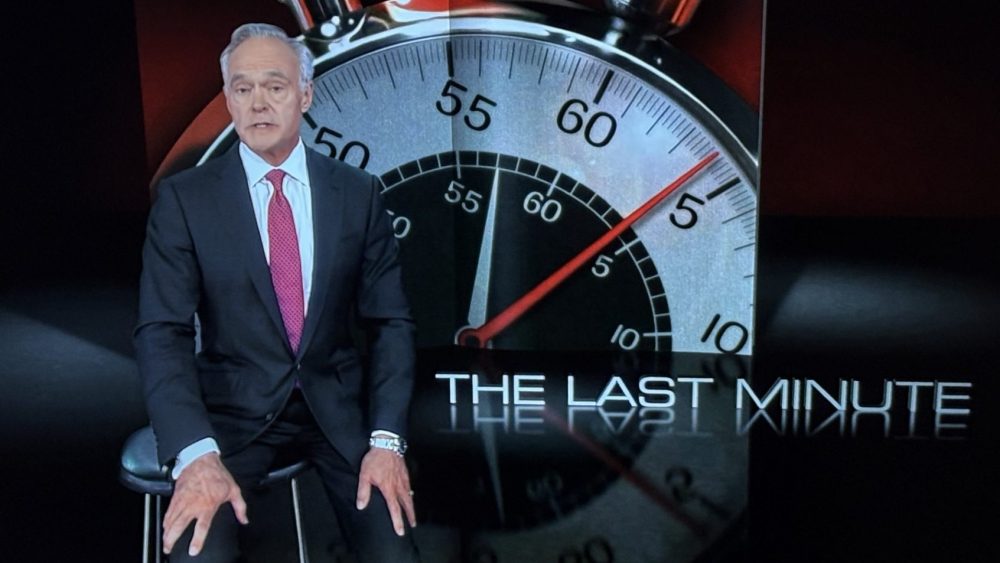All seemed normal in the first 98% of Sunday’s broadcast of “60 Minutes” on CBS. But the remaining 2% may have shocked viewers.
In the show’s “Last Minute” segment, correspondent Scott Pelley told the audience of the venerable newsmagazine that Bill Owens, the program’s executive producer, opted to depart last week as Paramount Global, the parent of CBS News, tries to navigate its way to a merger and after it had placed more scrutiny on “60 Minutes” editorial processes while the show investigated war in the Gaza region and how President Trump’s policies affected Americans.
“Paramount began to supervise our content in new ways. None of our stories has been blocked, but Bill felt he lost the independence that honest journalism requires,” Pelley said. “No one here is happy about it.”
The segment offered a rare instance of “60 Minutes” personnel criticizing the parent company’s management of the newsmagazine, one of TV’s highest-rated programs and one of journalism’s most respected vehicles, and of the show opening its inner workings to viewers who, on most weeks, are likely unaware of them.
Owens, just the third executive producer in the nearly six-decade history of the show, surprised many last week by saying he intended to leave the program, citing an increasing lack of ability “to make independent decisions based on what was right for ’60 Minutes,’ right for the audience” as parent company Paramount Global tries to move past a lawsuit filed against CBS News by President Donald Trump and secure its future in a merger with Skydance Media. At issue has been the interest of Shari Redstone, Paramount’s controlling shareholder, in finding a way to move past what is perceived as a slow-walk of regulatory approval for the pending acquisition of her company by Skydance President Trump filed a suit in federal court in the Northern District of Texas in November, alleging that “60 Minutes” tried to mislead voters by airing two different edits of remarks made in an interview with former Vice President Kamala Harris, then Trump’s rival for the White House. CBS sought to have the case thrown out, and many legal experts have expressed the notion that the suit’s legal standing is flimsy.
Paramount in January put in place a new layer of editorial supervision at CBS News, naming Susan Zirinsky, a veteran producer and former CBS News president, as “interim executive editor” who was assigned to oversee standards, and help to vet stories and journalistic practices. The new role was created after a series of controversies tied to CBS News coverage across shows including “60 Minutes” and “CBS Mornings.” But the structure proved alarming to people who put “60 Minutes” together each week. Owens said Tuesday that he faced an increasing lack of ability “to make independent decisions based on what was right for ’60 Minutes,’ right for the audience.”
The show has enjoyed an unprecedented level of autonomy in its nearly six decades on air, and while it has long screened its stories for legal scrutiny and adherence to journalism standards, it has been allowed to police itself. Suddenly, producers were being asked to incorporate someone else into its process. In this case, Al Ortiz, a former CBS News senior producer and head of news standards and practices, was helping to vet stories, according to three of the people familiar with the matter. Ortiz had enjoyed a cordial relationship with Owens in the past and has enjoyed respect throughout his career, these people indicate, but his new presence left show producers feeling they were being monitored by outsiders with motivations not entirely focused on the program. Owens’ resignation is seen by “60 Minutes’ staffers as a warning sign to corporate about the potential erosion of the newsmagazine’s credibility.
“Bill resigned on Tuesday. It was hard on him and it was hard on us,” Pelley said. “But he did it for us.”
More to come…



